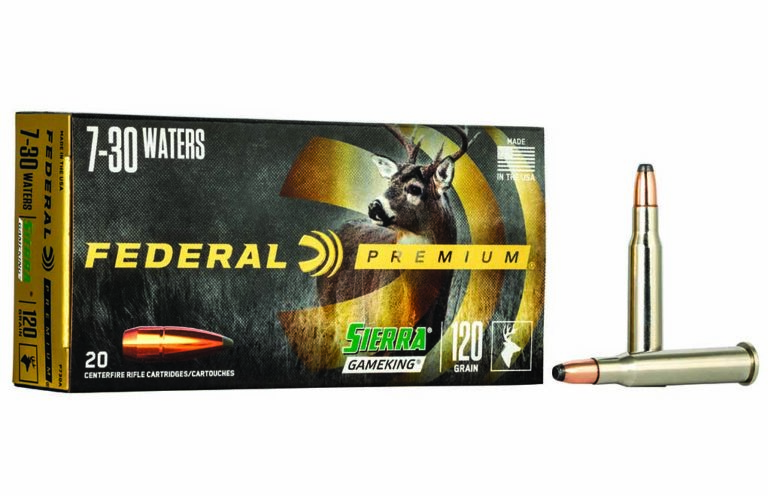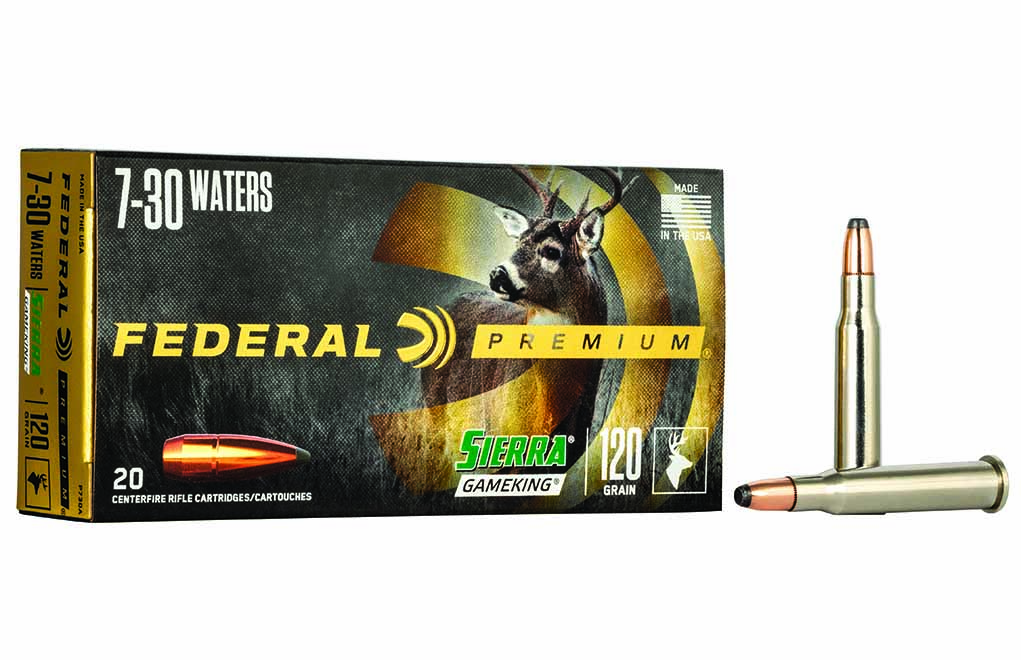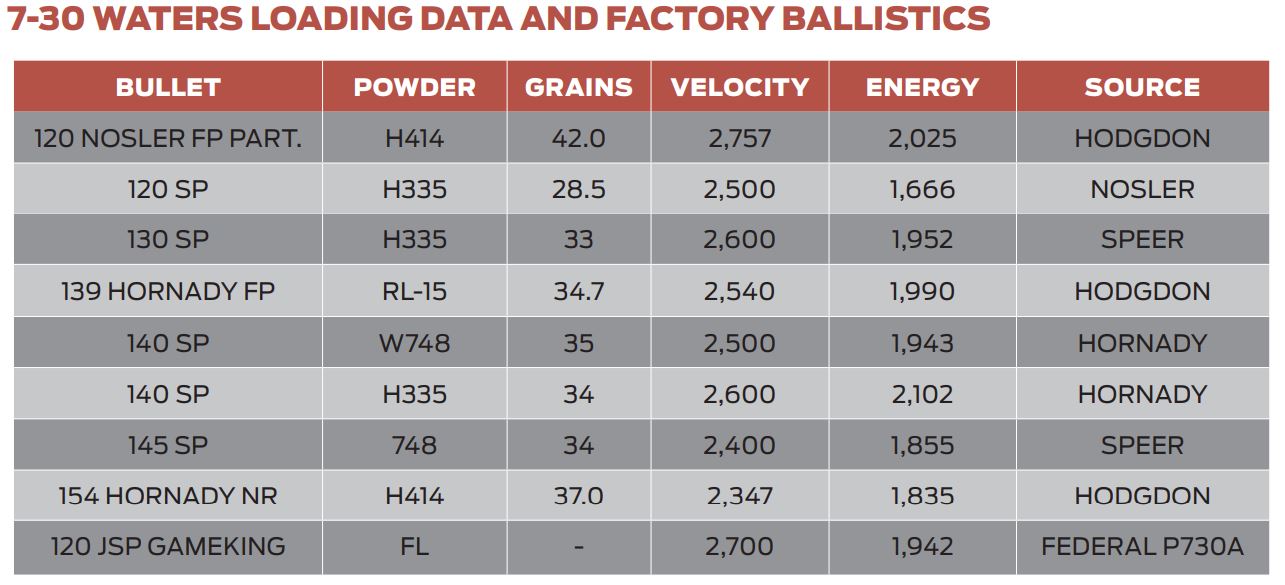

A .30-30 case necked down for a 7mm bullet, the 7-30 Waters improves on its parent's velocity and range, but not enough to dethrone it.
What's The Skinny On The 7-30 Waters:
- The cartridge was the work of Ken Waters, a well-known gun writer and ballistics expert.
- It's capable of pushing a 139-grain 7mm bullet at 2,600 fps.
- It performs best out an rifle-length barrel, somewhat a drawback given it's designed for lever-actions.
- Excels in broken country, where shots range from 75 to 175 yards.
The 7-30 Waters was introduced in 1984 for the U.S. Repeating Arms Model 94XTR Angle Eject rifle and carbine. The cartridge was the work of Ken Waters, a well-known gun writer and ballistics expert. He began planning the cartridge in 1976 as a high-velocity, flat-trajectory round for short, handy, lever-action carbines.
There are many problems to be overcome by those who’d improve on the performance of the .30-30 cartridge class in lever-action rifles. Severe restrictions are imposed by tubular magazines, the length of the action and permissible working pressures. However, by 1982, Waters had developed a cartridge that’d push the 139-grain 7mm bullet at 2,600 fps.
At this point, U.S. Repeating Arms Co. became interested in the project and decided in 1983 to produce Model 94 lever-action rifles in this new cartridge. Federal Cartridge Co. then completed the final version of the cartridge by making various dimensional changes and opting for a lighter 120-grain bullet to achieve higher velocity at less pressure. The current commercial loading uses a 120-grain Nosler Partition bullet that develops a muzzle velocity of 2,700 fps when fired from a 24-inch barrel.
General Comments On The 7-30 Waters
The 7-30 Waters does offer improved performance for those who like lever-action carbines or rifles. This should make a good deer- and black bear-class cartridge. However, the majority of .30-30 lever-action shooters prefer the short carbine, since most are woods hunters. The 7-30, with its light 120-grain bullet, is unlikely to best the .30-30, .32 Special, .38-55, etc., with shots at close range.
Also, it’s not going to be the answer for the long-range plains or mountain hunter. When fired from a 20-inch barrel, its performance is considerably reduced. So, anyone interested in this cartridge will be better served if they buy the rifle rather than the carbine. The light recoil of this cartridge makes it an excellent choice for anyone sensitive to recoil. The 7-30 is at its best in broken country, with shots varying from patches of brush and trees to open areas, with shots ranging from 75 to 175 yards.

Editor's Note: This article is an excerpt from Cartridges of the World, 16th Edition.
Raise Your Ammo IQ:
- Beyond The 6.5 Creedmoor: The Other 6.5 Cartridges
- The Lonesome Story Of The Long-Lost 8mm
- Why The .300 H&H Magnum Still Endures
- .350 Legend Vs .450 Bushmaster: Does One Win Out For Hunting?

![Best Concealed Carry Guns In 2025 [Field Tested] Wilson Combat EDC X9S 1](https://gundigest.com/wp-content/uploads/Wilson-Combat-EDC-X9S-1-324x160.jpg)


![Best 9mm Carbine: Affordable PCCs [Tested] Ruger Carbine Shooting](https://gundigest.com/wp-content/uploads/Ruger-Carbine-Shooting-100x70.jpg)
![Best AR-15: Top Options Available Today [Field Tested] Harrington and Richardson PSA XM177E2 feature](https://gundigest.com/wp-content/uploads/Harrington-and-Richardson-PSA-XM177E2-feature-100x70.jpg)
